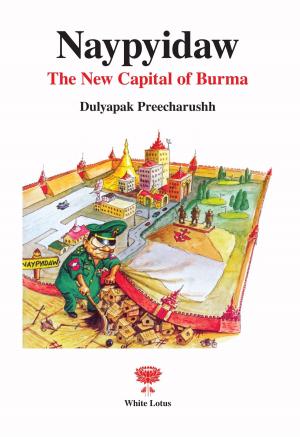| Author: | Pasuk Phongpaichit | ISBN: | 9786167817118 |
| Publisher: | Proglen | Publication: | October 4, 2013 |
| Imprint: | Smashwords Edition | Language: | English |
| Author: | Pasuk Phongpaichit |
| ISBN: | 9786167817118 |
| Publisher: | Proglen |
| Publication: | October 4, 2013 |
| Imprint: | Smashwords Edition |
| Language: | English |
Our thanks to the International Labour Organization for permission to publish this 1982 study.
In the poorer parts of the north and north-east of Thailand, peasant girls are induced to go to Bangkok and become prostitutes earning their living as "masseuses". Their remittances enable their families to meet their basic housing, water and education needs. The author portrays the world of these girls and then traces its relationship with the pattern of rural and national development.
FROM THE PREFACE
The World Employment Conference in June 1976 noted that women constitute the group at the bottom of the ladder in many developing countries, in respect of employment, poverty, education, training and status. Concerning rural women, the Conference recommended that measures be taken to relieve their work burden and drudgery by improving working and living conditions, as well as by providing more resources for investment. In order to contribute to information on work patterns and problems of rural women, part of the lLO’s activities under the World Employment Programme focuses on these questions, largely through field studies by researchers in Third World countries. The aim has been gradually to develop a substantial body of knowledge and then proceed to the discussion and dissemination of research findings at seminars and workshops, followed by the planning and implementation of technical co-operation projects, in close consultation, where possible, with rural women’s own organisations.
Our thanks to the International Labour Organization for permission to publish this 1982 study.
In the poorer parts of the north and north-east of Thailand, peasant girls are induced to go to Bangkok and become prostitutes earning their living as "masseuses". Their remittances enable their families to meet their basic housing, water and education needs. The author portrays the world of these girls and then traces its relationship with the pattern of rural and national development.
FROM THE PREFACE
The World Employment Conference in June 1976 noted that women constitute the group at the bottom of the ladder in many developing countries, in respect of employment, poverty, education, training and status. Concerning rural women, the Conference recommended that measures be taken to relieve their work burden and drudgery by improving working and living conditions, as well as by providing more resources for investment. In order to contribute to information on work patterns and problems of rural women, part of the lLO’s activities under the World Employment Programme focuses on these questions, largely through field studies by researchers in Third World countries. The aim has been gradually to develop a substantial body of knowledge and then proceed to the discussion and dissemination of research findings at seminars and workshops, followed by the planning and implementation of technical co-operation projects, in close consultation, where possible, with rural women’s own organisations.















